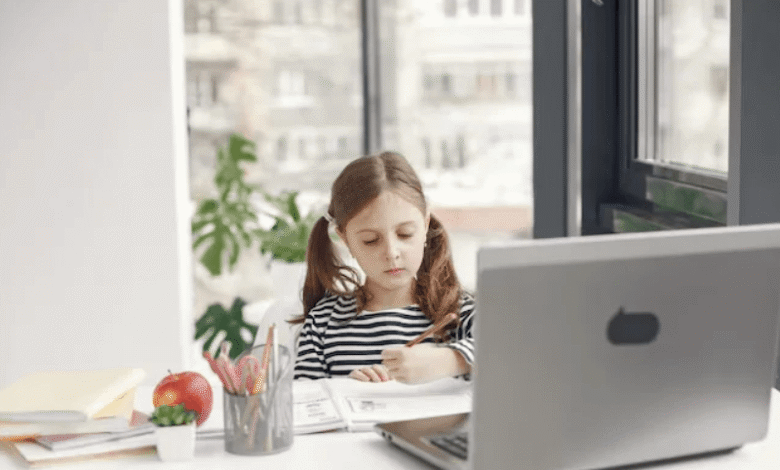When Traditional School Isn’t Working: How Oxford Online Learning Helps

You’ve tried everything with your child. The morning battles. The phone calls from teachers. The tears before going to bed.Your child used to love learning. Now they dread it. Traditional school was supposed to work. That’s what everyone said. But watching your child struggle day after day tells a different story. Maybe they’re falling behind despite being clever. Perhaps they come home exhausted and anxious. Or they’ve stopped trying altogether.
You’re not imagining it. Something genuinely isn’t working. The question is what comes next.
Many parents face this exact moment. The system that works for most children doesn’t work for yours. Oxford online learning offers a different path, one that might actually fit your child’s needs rather than forcing them to fit a rigid structure.
Why Traditional Schools Sometimes Fail Bright Children
Here’s what people don’t talk about enough. Traditional schools follow a one-size-fits-all model. Thirty students in a room. One teacher. A fixed pace that never adjusts.
Some children thrive in this environment. Others don’t.
Your child might be brilliant at maths but needs extra time with reading. They might understand concepts quickly but feel overwhelmed in crowded classrooms. Perhaps they’re dealing with anxiety that makes physical attendance difficult. Or maybe they’re a young athlete whose training schedule clashes with school hours.
None of these situations means your child can’t succeed. They just need a different approach.
The many online schools follow provides the same qualifications as traditional schools. Your child isn’t missing out academically. They’re gaining something traditional schools struggle to provide: personalised attention.
What Makes Online Learning Different
Let’s break it down. Oxford online learning centres on live lessons with qualified teachers. Not recorded videos. Not self-study modules. Real teachers teaching real classes in real time.
The difference is class size. Instead of competing for attention among thirty students, your child joins a small group. Teachers know each student’s name. They notice when someone struggles. They adapt their teaching style.
This matters more than you might think. Children who felt invisible in traditional schools suddenly have teachers who see them. Who asks how they’re doing? Those who remember that they find fractions tricky or love creative writing.
The flexibility extends beyond just location. If your child learns better in the morning, they can study then. If they need breaks to manage anxiety, they can take them without judgment. If they’re travelling with your family, lessons continue wherever you are.
But here’s what really changes things. The focus shifts from just passing exams to building character and confidence. Your child isn’t just memorising facts. They’re developing critical thinking skills. They’re learning to work independently. They’re joining a community of students from around the world.
The Relief of Finding What Fits
Think about what life could look like. No more morning battles. No more calls from the school. No more watching your child’s confidence crumble.
Instead, your child wakes up without dread. They log into class and contribute without fear. They actually enjoy learning again. You see glimpses of the curious, engaged child you remember.
Other families have walked this path. Children who refused to attend traditional school now participate eagerly. Young performers balance training and studies without sacrificing either. Students with anxiety find a supportive environment where they can breathe.
Perhaps most telling is what happens to their sense of self. Children who feel like failures start believing in themselves again. They discover strengths they didn’t know they had. They build friendships with students across different countries and backgrounds.
Addressing the Doubts
You might worry about socialisation. Fair concern. But online doesn’t mean isolated. Students interact during lessons, work on group projects, and participate in enrichment programmes. Many families say their children have more meaningful friendships now than they did in traditional school.
What about university preparation? The British qualifications your child earns are recognised worldwide. Many online school graduates attend top universities. The independent learning skills they develop often give them an advantage.
The structure question comes up, too. Online learning isn’t unstructured chaos. Students follow a clear timetable. They submit work on deadlines. They attend lessons regularly. The difference is that this structure bends around your child’s needs rather than breaking them to fit.
Making the Change
Switching from traditional school feels big. It is big. But staying in a situation that damages your child’s wellbeing and confidence might be bigger.
You don’t need to decide everything today. Most online schools offer information sessions where you can ask questions. Some provide trial periods. You can explore options without pressure.
Talk to your child, too. They might surprise you with their thoughts. Many children feel relieved when parents acknowledge that school isn’t working. They often have clear ideas about what would help.
The admissions process typically involves discussing your child’s needs and goals. Schools want to ensure they can provide proper support. They’re not looking for perfect students. They’re looking for students they can genuinely help.
What Happens Next
Your child deserves an education that works for them. Not one that leaves them anxious, behind, or defeated. Not one where they feel lost in the crowd or judged for being different.
Oxford online learning provides an alternative built around real children with real needs. Live teachers who care. Small classes that allow connection. Flexibility that accommodates life’s complexities. A community that celebrates differences rather than punishing them.
The path forward doesn’t have to look like everyone else’s path. It just has to work for your family.
If traditional school isn’t working, that’s not a failure. It’s information. You now know your child needs something different. The question becomes whether you’re ready to find it.



